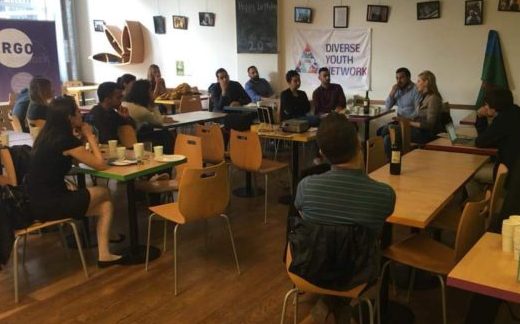Evictions of Roma Travelers in Brussels: Is Antigypsyism the last accepted form of racism?
On 28 June 2018, evictions of Roma Travelers are to take place in Anderlecht, Brussels. The group of Roma who are going to be evicted are Belgian Roma for centuries. They were born here, as well as their parents and their grandparents. Roma Travelers have always been living on the territory of the Municipality of Anderlecht – part of the European capital Brussels.
Nevertheless, Belgian Roma Travelers remain one of the most neglected communities in Europe. During the Second World War, a big part of the Belgian Roma Community who is traditionally travelling and living in caravans were deported to the Nazi concentration camps. Today, a generation later, Belgian Roma Travelers are being constantly evicted from site to site, unwanted and unwelcomed by the local authorities.
Only two weeks ago, the Anderlecht Municipality announced to the Belgian Roma living on Dante Street that they needed to leave the site. The motive: the land where the camp is located is polluted.
Apparently, this is not the first attempt of the Mayor of Anderlecht Eric Tomas from the Socialist Party to get rid of the Belgian Roma Travelers site. Many times the police have come to the site and ordered them to move without any official order or notice. In April 2018, the local police went to the Belgian Roma Travelers site on Dante Street and ordered them to move, again without any document. However, this time the Roma refused to follow orders without the needed legal attributes.

The owner of the land where the Roma camp is located is not the municipality of Anderlecht. The land of the camp is the private property of the Boghossian Foundation – an Armenian philanthropist family. So far, the Boghossian Foundation refused to cooperate with local authorities and police and to support the eviction of the Roma from their private land. Despite this, the municipality have found an excuse to still conduct the evictions – the pretext is that the land is polluted. This is happening in the context of the coming local elections that will take place in October.
The questions are many. Is Antigypsyism acceptable in the very heart of the European Union and its values? Is the Socialist Party ready to take responsibility for such an act and do they propose any alternative for the Belgian Roma who actually are Belgian citizens? What is the moral right of an Armenian foundation to evict another minority that went through the very same persecution and genocide? Is Antigypsyism the last acceptable form of racism?
There has been the possibility for several years now to create a Travelers site with allocated land and facilities. There is even a special fund from the Brussels Region that can be used for this. However, no municipality so far showed an interest and took advantage of this funding (except Haren).
Three days before the evictions part of the camp was set on fire. Тhe perpetrators remain unknown. The evictions will still take place as planned on 28 June 2018. Where will the Belgian Roma go? Will their children attend school? Will they be provided an alternative? The answer is No. Until the next evictions.
Written by Atanas Stoyanov




